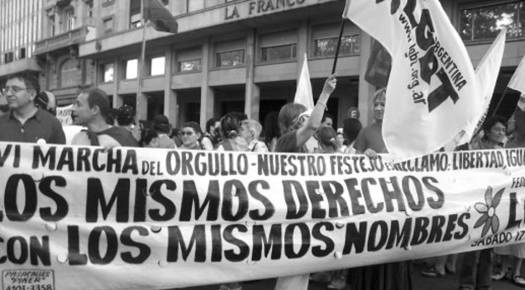
Argentina, Brazil, Colombia, Uruguay and some parts of Mexico recognize same-sex marriages. But other countries such as Bolivia, Cuba, Dominican Republic, Honduras, Paraguay and Peru do not allow same-sex marriages. The Inter-American Court of Human Rights has ruled on January 9 that same-sex marriages should be recognized. The court was established by the regional body, the Organization of American States (OAS) and these rulings apply to all countries which have signed the American Convention on Human Rights. Some of the countries recognize same-sex civil unions instead same-sex marriage, such as Costa Rica.
The opinion sets precedent for all 23 member states, 19 of which did not recognize same-sex marriage at the time of the ruling: Barbados, Bolivia, Chile, Costa Rica, Dominica, Dominican Republic, Ecuador, El Salvador, Guatemala, Grenada, Haiti, Honduras, Jamaica, Mexico, Nicaragua, Panama, Paraguay, Peru, and Suriname. Of those, all but Grenada, Jamaica, and Dominica have accepted the court's blanket jurisdiction.
The judges issued the ruling in response to a Costa Rican move. Two years ago, Costa Rican president Luis Guillermo Solis submitted a petition to increase rights for lesbian, gay, bisexual and transgender people in the majority Catholic country. The Central American government asked the court to give its opinion on whether it had an obligation to extend property rights to same-sex couples. The court ruled that it did. The Costa Rican government also wanted to know whether it should allow transgender people to change their name on their identity documents. Again, the court ruled that it should.
“The court ... reminds all states on the continent, including ours, of their obligation and historical debt toward this population,” Costa Rica’s vice president Ana Helena Chacon said at a press conference. In August 2017, Chilean President Michelle Bachelet has signed a bill that would legalize same-sex marriage, and sent it to congress for debate.
The judges said that governments "must recognize and guarantee all the rights that are derived from a family bond between people of the same sex". The judges also demanded that governments "guarantee access to all existing forms of domestic legal systems, including the right to marriage, in order to ensure the protection of all the rights of families formed by same-sex couples without discrimination".
Given the strong opposition to same-sex marriages in some of those states, it is proposed that the governments of these countries pass temporary decrees until new legislation was brought in.
Photo Credits: Wikimedia
